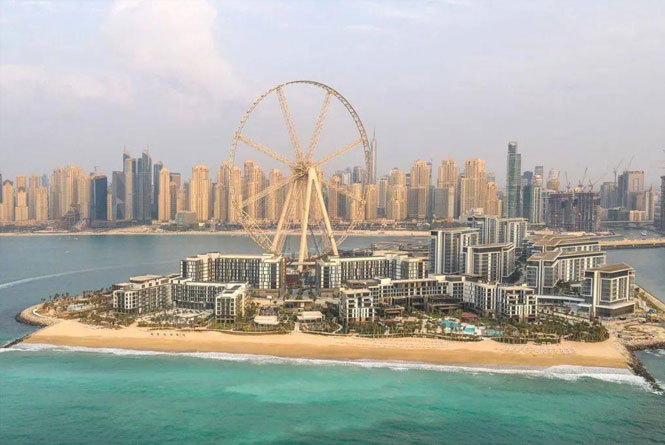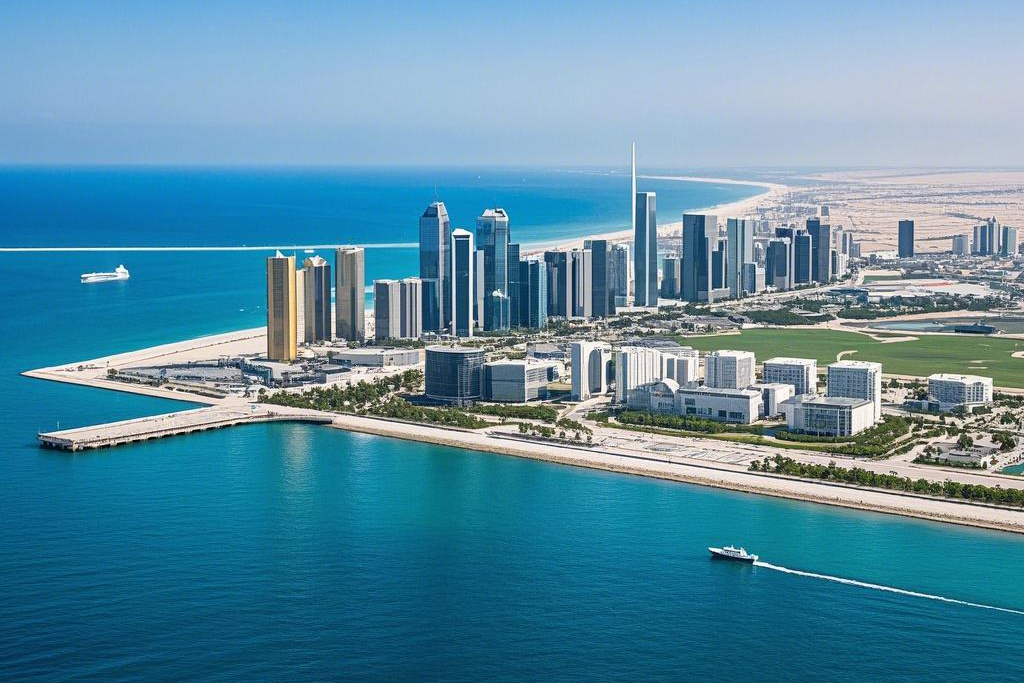When planning to establish a business in a dynamic market like the United Arab Emirates (UAE), one of the most critical decisions an entrepreneur will face is choosing the right legal jurisdiction. The choice fundamentally boils down to two primary options: setting up a free zone company or a mainland company. This decision impacts everything from your operational scope and ownership structure to your tax obligations and long-term growth potential. While both offer unique advantages, they are designed for different business models and strategic goals. Understanding the difference between free zone and mainland companies is not just a preliminary step—it is the foundation upon which a successful business venture is built. This comprehensive analysis will dissect the key distinctions across five crucial areas to provide the clarity needed to make an informed choice.

Before diving into the differences, it's essential to define what these terms mean.
A mainland company is an onshore entity licensed by the Department of Economic Development (DED) in the respective emirate (e.g., Dubai DED). It is permitted to conduct business directly within the local UAE market and the wider GCC region without restrictions. This structure is ideal for businesses that aim to target the local consumer base, bid for government contracts, or establish a physical retail presence.
On the other hand, a free zone company is established within one of the UAE's many designated free zones—special economic areas like Dubai Multi Commodities Centre (DMCC), Jebel Ali Free Zone (JAFZA), or Abu Dhabi Global Market (ADGM). These zones are designed to promote foreign direct investment by offering incentives such as 100% foreign ownership, full repatriation of capital and profits, and custom tax benefits. However, their primary limitation is that they are generally restricted to operating within the free zone itself or internationally; direct business within the UAE mainland requires a special intermediary.
This is often the most significant difference between free zone and mainland companies.
Free Zone Companies: The most prominent advantage here is 100% foreign ownership. International investors can fully own their enterprise without the need for a local partner or sponsor. This provides complete control over decision-making, profits, and company assets.
Mainland Companies: Historically, mainland companies required a UAE national to hold at least 51% of the company shares. However, recent legislative changes have opened up numerous sectors to 100% foreign ownership on the mainland. Despite this liberalization, it is not universal. For many activities, the requirement for a Local Service Agent (LSA) or, in some cases, a local partner, may still apply. The key is to verify the specific business activity with the DED. This evolving landscape still often positions free zones as the more straightforward route for guaranteed full foreign ownership.
The geographical and market scope of your operations is another fundamental point of divergence.
Mainland Companies: These entities enjoy unrestricted access to the UAE market. A mainland company can directly sell its products or services to customers anywhere in the UAE, participate in government tenders, and open retail outlets across the country. It is the clear choice for businesses whose primary target is the domestic economy.
Free Zone Companies: A free zone company is legally confined to operating within the boundaries of its specific free zone. While it can conduct business internationally without any hindrance, its ability to sell directly to the UAE mainland market is limited. To do so, it must engage a mainland company as a distributor or agent, or use a customs-clearing agent, which incurs additional costs and layers of complexity. Some free zones are now offering enhanced licenses that ease these restrictions, but the core principle of limited domestic market access remains a key differentiator.

Both jurisdictions offer attractive financial environments, but the specifics vary.
Free Zone Companies: Free zones are synonymous with tax benefits. They typically offer corporate tax holidays for a renewable period (often 15-50 years), 100% exemption from import and export duties, and full repatriation of profits and capital. With the recent introduction of a 9% Federal Corporate Tax in the UAE, businesses in Free Zones can maintain a 0% tax rate if they comply with certain conditions and do not conduct business with the UAE mainland.
Mainland Companies: Mainland companies are subject to the general provisions of UAE tax law. While they benefit from no personal income tax and no restrictions on currency, they are now subject to the Federal Corporate Tax. The standard statutory rate is 9%, which applies to taxable income exceeding a specific threshold. This direct tax liability is a crucial financial consideration when comparing the two structures, although the rate remains highly competitive globally.
The regulations concerning physical workspace are strictly enforced and differ significantly.
Free Zone Companies: Most free zones have mandatory requirements for a physical office space. This can range from a flexi-desk to a full-scale warehouse or manufacturing unit, depending on the license type. The free zone authority provides the premises, and the cost is included in the licensing fees. This ensures a professional address but offers less flexibility in location choice outside the zone.
Mainland Companies: For a mainland company, the requirement is to lease a physical office or commercial space that is appropriate for the business activity. The tenancy contract, attested by the relevant municipality, is a prerequisite for obtaining the trade license. This offers more freedom in choosing a location that is strategic for accessing the local customer base but often involves a higher cost and a more complex setup process compared to a free zone's packaged solutions.
The journey of incorporation and ongoing administration also highlights a clear difference between free zone and mainland companies.
Free Zone Companies: The process is typically streamlined, fast-tracked, and designed for efficiency. Many free zones operate as one-stop-shops, handling all documentation, licensing, and government liaison services. The costs are often more transparent and packaged, making budgeting easier. The entire process can often be completed in a matter of days.
Mainland Companies: Setting up a mainland company can be more procedurally complex. It involves coordination with multiple government entities, including the DED, the municipality, and sometimes the Chamber of Commerce. The requirement for attested documents, a physical space, and potential involvement of a local partner or agent can lengthen the timeline and increase the overall setup cost. While authorities have made significant strides in simplifying the process, it generally remains more involved than its free zone counterpart.
The decision to establish a free zone company or a mainland company is not a matter of which is better, but which is better for you. It is a strategic choice that hinges on your specific business objectives. If your goal is 100% foreign ownership with minimal bureaucracy, and your business model focuses on international trade or specific services within a confined zone, then a free zone company is likely the optimal path. Conversely, if your ambition is to tap directly into the lucrative UAE domestic market, engage in retail, or pursue government contracts, then the broader market access of a mainland company outweighs the ownership and tax considerations.
Ultimately, a deep understanding of the difference between free zone and mainland companies is your first and most important investment. By carefully weighing these five aspects—ownership, market access, taxation, physical presence, and setup process—you can align your company's legal structure with its long-term vision, ensuring a solid foundation for success in the UAE's thriving economy.










Zhuoxin Consulting relies on its Chinese service network and Dubai executive team to provide professional one-stop business services without communication barriers for Chinese companies to enter the Middle East market. Its business covers company establishment and maintenance, accounting and taxation, bank account opening, PRO services and business services.
Zhuoxin Consulting has high-quality business resources and maintains close cooperation with many free zones, bankers and tax departments in the UAE to escort your expansion in the Middle East market.
 Add WeChat
Add WeChat